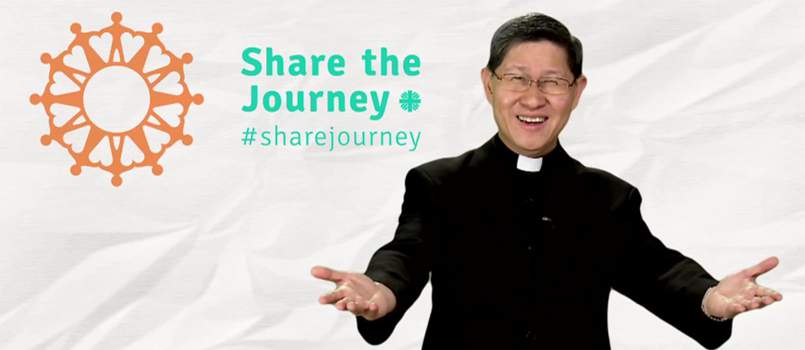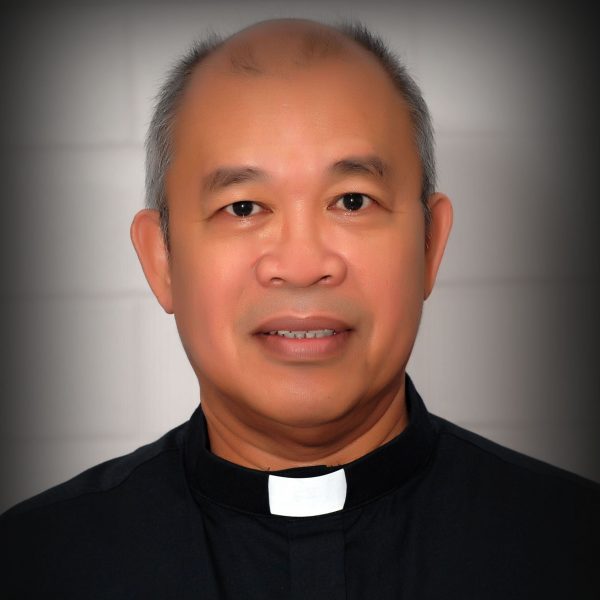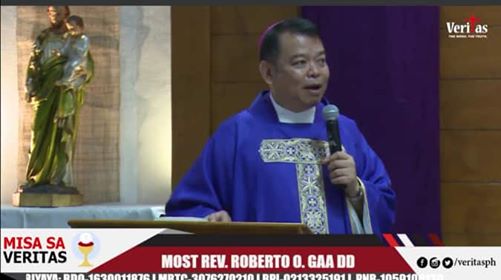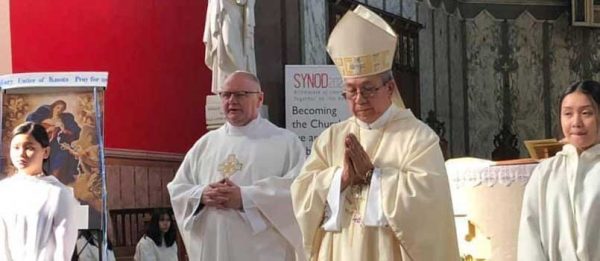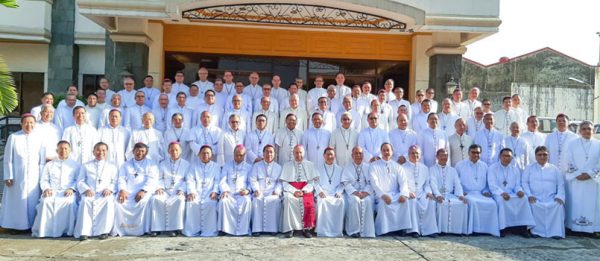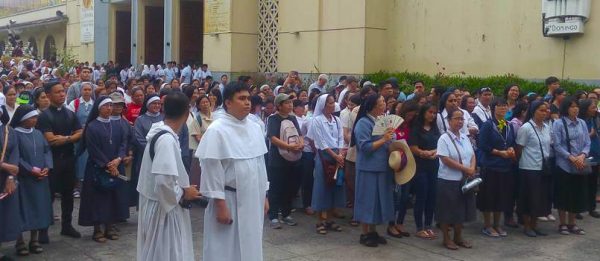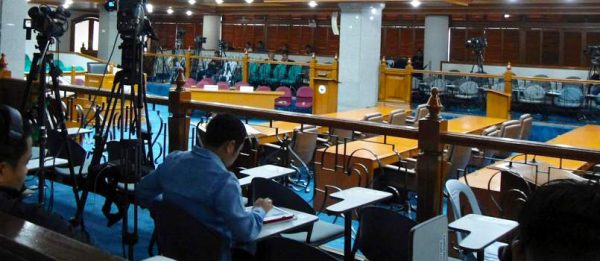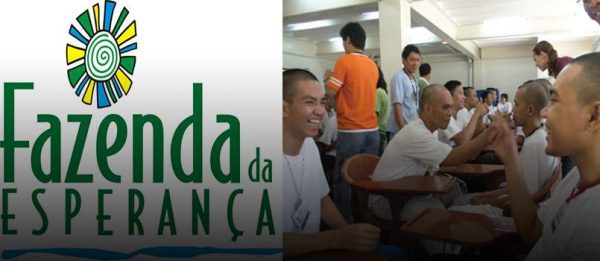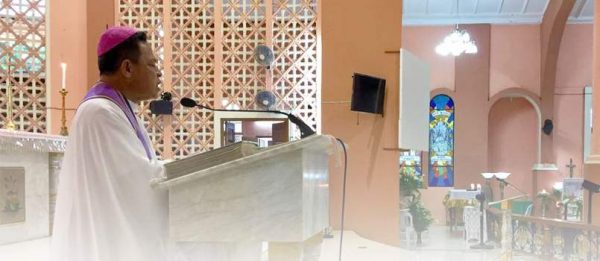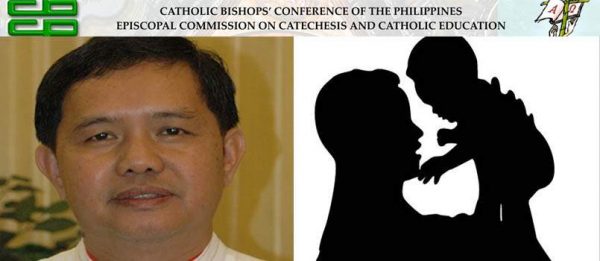1,311 total views
Sa nalalapit na pagdiriwang ng Linggo ng Pagkabuhay hinihikayat ni Manila Archbishop Luis Antonio Cardinal Tagle, pangulo ng Caritas Internationalis ang bawat mananampalataya na makiisa sa paglalakbay pananampalataya, pag-asa at pag-ibig.
Ang mensahe ni Cardinal Tagle ay kaugnay na rin sa nalalapit na pagdiriwang ng Easter at panawagan sa lahat na makiisa sa ‘Share the Journey Campaign’ na layong pagmalasakitan ng bawat isa ang mga migrante.
Ang Caritas ‘Share the Journey Campaign’ ay inilunsad noong September 2017 kasama ang kaniyang Kabanalan Pope Francis.
Ang nasabing programa ay sabay ding inilunsad sa Pilipinas sa Adamson University; Basilica of the Black Nazarene o Quiapo church at Caritas Manila na inorganisa ng Archdiocese of Manila katuwang ang Caritas Manila, Radio Veritas at TV Maria.
Umaasa si Cardinal Tagle na sa ganitong paraan ay maging bahagi ang bawat isa na gumawa ng kahit na maliliit na kabutihan at pagmamalasakit sa kapwa lalu na yaong mga taong sapilitang lumikas sa kanilang lugar dahil na rin sa kahirapan, karahasan at digmaan.
Itinakda naman sa June 17-24, 2018 ng Caritas Internationalis ang kampanya sa lahat ng Caritas organization sa buong mundo para isulong ang mga programa para sa pagsasakatuparan ang pagkakaisa bilang iisang pamilya at ang pagmamalasakitan sa bawat tao.
Base na rin sa tala ng United Nations, umaabot na sa higit 65 milyon ang bilang ng mga migrante at refugees sa buong mundo kasama na dito ang mga sapilitang lumikas sa kani-kanilang lugar dulot ng kahirapan, karahasan at digmaan.
Sa isang mensahe ni Pope Francis noong January 1, 2018 kasabay ng pagdiriwang ng ‘World Day of Peace’ sinabi niyang marami ang naghahanap ng kapayapaan at kaayusan at ang kapayapaang ito ay karapatan ng bawat isa na hindi dapat ipagkait ninuman.
Ayon sa Santo Papa Francisco, hindi dapat panghinaan ng loob ang mga migrante sa paghahanap na ito sa tulong na rin ng kanilang kapwa na handang kumalinga at tumulong.
Ang buong mensahe ni Cardinal Tagle:
This Easter time, we at Caritas would like to invite you to join us on a journey of faith, hope and love with migrants. Jesus undertook many journeys during his life. As an unborn child he went from Nazareth to Bethlehem. As a child refugee he went to Egypt. As a preacher he traveled the roads of Galilee.
His seemingly final journey was to travel up Calvary carrying the heavy wooden beam of a cross. But what appeared to be the end of Jesus’ journey was really a beginning. By leaving the tomb, Christ shatters the boundaries of what we thought we knew. By rising from the dead, Christ invites us to roll away the stones that are blocking our own hearts and imagination and to share the journey with each other – in particular with the most vulnerable people, such as migrants. In September 2017, Pope Francis launched our Share the Journey campaign and invited us to open our hearts to hope, as that is what drives migrants to leave their lands.
It is also in the hearts of those who welcome them: “Hope is the force that drives us “to share the journey”, because the journey is made jointly: by those who come to our land, and by us who go towards their heart, to understand them, to understand their culture, their language.” Not long after his death, Jesus appeared to two disciples on the road to Emmaus. They were full of fear following Jesus’s death. They didn’t recognize Jesus until they sat down for a meal together and he broke bread. How many times in a day do we not recognize Jesus in the people who cross our paths? We may be busy or distracted, or we may be closed in the tomb of our own fears and misconceptions.
But there are specific moments in our lives when we need to be reminded of a fundamental truth: we were given each other so that we would have someone with whom to share our journeys. A small gesture like reaching out with your arms to somebody else means a lot as it touches different levels of human existence. This is the gesture we are encouraging people to do as part of Share the Journey. I reach out and if a person feels alone and isolated, my reaching out is a gesture of solidarity. If I reach out and that person is wounded, it could be a sign of healing. If I reach out and the person is lost, it could mean an offer of guidance. If I reach out and the person feels like nobody cares, then it will be a sign of friendship.
That small gesture means different things in different stages of people’s life journey. Christ performed the ultimate gesture of reaching out to others on the cross. He opened his arms and emptied himself out to receive God’s will. We do not necessarily need to do extraordinary and extravagant things to make a difference in the lives of people. Small gestures, ordinary gestures, when done with sincerity, with the light of human understanding and compassion, can do extraordinary things.
We invite you all to join us in making small gestures of compassion towards the migrants you meet on your daily journeys. We invite you to see Jesus in the migrant and in yourself. In the week of 17-24th June 2018, we will hold a global week of action for Share the Journey. You can join Caritas organisations and migrants around the world in the activities we organised that week. In particular, like Jesus and the disciples in Emmaus, we invite you to share a meal with migrants as a reminder of our unity as one global family and of our need for each other.
We hope that through these small actions of understanding and communion, we create a wave of global solidarity which rolls away the stones which are blocking us and takes us on a journey which ignites our imagination. By harnessing our collective global energies – migrants, refugees and communities together – we will set the world on fire with God’s love.
To Caritas, a migrant is a person on the move, who needs accompaniment, support and protection. We use this broad term for migrants in our campaign. They may be refugees, or asylum seekers. They may be internally displaced within their own country by a conflict or a natural disaster, or may have moved to seek work. They may be adults or children, on their own or with their families. They may have been trafficked.

